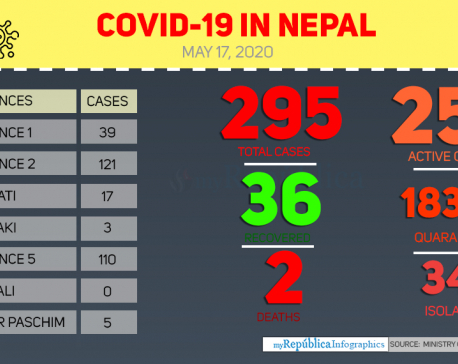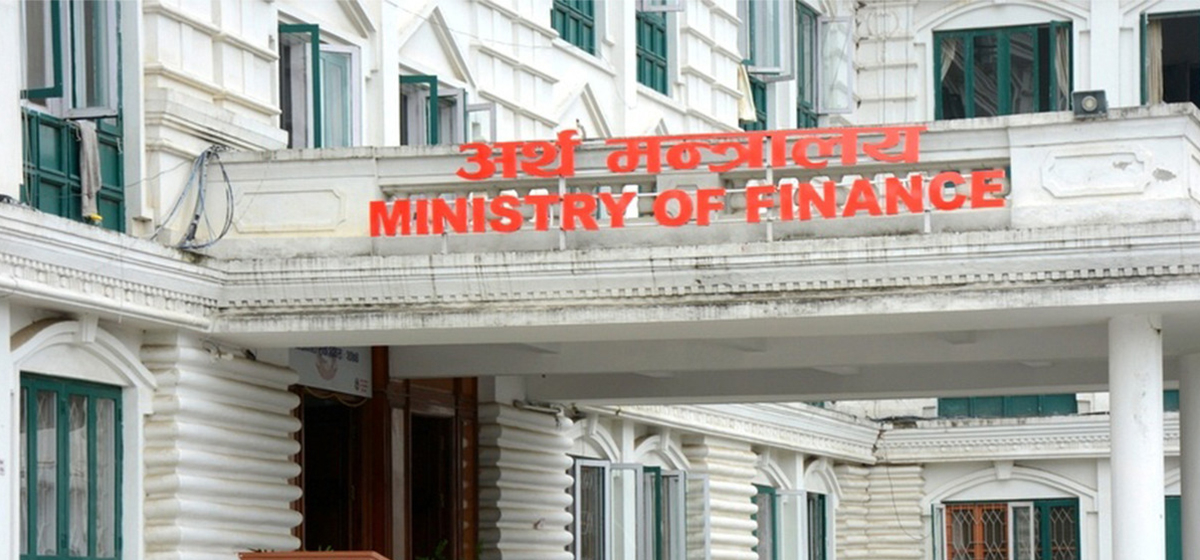
OR

More from Author
Isn’t it the right time for the government to leverage the skills of youths to build a prosperous Nepal once the pandemic is over?
Nepal’s youth unemployment rate is fairly high—the latest data places it at 19.2 percent for those between the ages of 15 and 29. Given this, it is undeniable that the government needs to address this high unemployment rate as its repercussions can be dire. Due to Covid-19, coupled with a huge number of youths migrating back to Nepal from abroad, the national unemployment rate, along with the youth unemployment rate, is expected to rise. A failure to create jobs for young people can threaten Nepal’s newfound political stability.
A large number of youths migrate to seek better opportunities abroad. In 2018/19, young people of 18-24 age group comprised 36 percent of the total outbound migrants. This age group is the most productive when it comes to building the nation, but they leave the country looking for better opportunities to meet even their basic needs as well as to support their family. On the surface, it may look like migration is good, because it brings in a lot of remittance to the country, but delving deep into it, migration brings in many problems.
The youths are willing to migrate for opportunities which they cannot find at home. A large number of youths do not know where they are going, what they are going to do, but they migrate nevertheless. With the current pandemic, many of these migrants have lost their job, are now left stranded in alien countries, and want to return home. The remittance is expected to decline due to the pandemic and with the young human capital wanting to return to their country, isn’t it the right time for the government to leverage the skills of these youths to build a prosperous Nepal once the pandemic is over? The government of Nepal has not considered the youths and their demand in the process of policymaking.
Weak policy implementation has had significant and negative implications on development indicators. To address this, it is important for the government and youth to reflect, recognise, and respect their individual and shared responsibilities. Yuwa Aaja! project—which is funded by the Department of International Development (DFID) Nepal and supported by the International Labor Organization (ILO)—has been bolstering trust and interdependence between the government and the youths to tackle domestic youth unemployment issues. A component of the Yuwa Aaja! project is the Public Administration Fellowship, which Daayitwa piloted this year in Province 2 and Province 5 by building on from the first cycle of learning from the Yuwa Aaja! campaign. By engaging the subnational youths in public institutions for effective policy implementation, Daayitwa aimed to enhance the capacity of subnational governments to promote youth employment and entrepreneurship. For any progressive policies that directly impact youth to be implemented, it is important that the government consider youth during their planning process.
This Fellowship thus provided a platform for youth engagement in the process of planning itself, to ensure better voice and representation. Fifteen fellows were selected from Province 2 and 5 for fellowship. The fellows were provided with Leadership and Public Administration courses. The courses aimed at supporting the fellows in their leadership journey, building on their ability to build partnerships with relevant stakeholders, improve their communication skills and build teams that are based on shared values.
After their training, each fellows of Province 2 and 5 worked together on a campaign, which focused on creating awareness and addressing youth unemployment challenges, which were exacerbated during the COVID-19 lockdown. The fellows from Province 2 worked on a campaign that aimed to bridge the communication gap between job opportunities, especially in the food industry sector, and job seeking labourers in certain municipalities in Province 2. The group conducted primary research, drafted and submitted a policy memorandum which sought to tackle the problem of growing youth unemployment caused by the lockdown. The fellows from Province 5 worked on a campaign that highlighted the problems facing youth farmers in various municipalities in Province 5. The fellows conducted primary research to learn about the problems and also hosted a panel discussion consisting of experts in the field of agriculture, which resulted in the submission of a draft policy memorandum documenting challenges impacting the youth farmers and youth agro-entrepreneurs of certain municipalities in Province 5 to the government officials. Additionally, each provincial team rigorously documented their process of formulating and implementing these team efforts, and outputs generated from their work, in the form of comprehensive reports.
The fellows have learnt a lot during the fellowship period and they have also had to adapt and respond to the challenge of Covid-19. They have done so by using the teachings of the course. While these successes were achieved, there were considerable challenges faced during the fellowship journey. One of the aims of the fellowship was to provide administrative support to the government in their youth-centric policies and programs. But due to the lockdown, this was not possible. Therefore, the course of action of the fellowship had to change from administrative support to research support. With the learnings from the course as well as constant support from Yuwa Aaja! team and the supervisors, the fellows have adapted to working from home and are working on research topics, recommending policies to the agencies that they are placed in on issues related to youth employment and entrepreneurship. Besides this, with Covid-19 relief being a priority of the government, the fellows are also assisting their supervisors with relief work such as creating Covid awareness as well as with data collection, thereby also engaging themselves in the community work.
These youth unemployment challenges are likely to get more serious as a result of Covid-19 challenges and with millions of youth migrants returning home. If the situation is not handled properly, it will lead to a deep crisis. However, if approached in a systematic manner, this can prove to be a boon for economic recovery once the pandemic is over. With the returning youth migrants, we now have a significantly increased supply of human capital in the provinces to fulfil the pre-existing demand. The government needs to match the returnee youth migrants with employers based on the skill-sets the migrants bring and the skill-sets that the employers need. For this, active participation, from both the youths and the government is vital. While the government should include youth in the process of policy making, the youth should also actively participate in the process, which will eventually build trust on both sides. Once this is achieved, then only can we dream of a prosperous Nepal that we have read about in articles and books.
The author is the Project Coordinator at Daayitwa
You May Like This

Health ministry confirms three new COVID-19 cases, number of total cases reaches 295
KATHMANDU, May 17: Nepal reported three new cases of COVID-19 on Sunday evening, taking the national tally to 295. ... Read More...

Dhurmus, Suntali to build ‘a Nepal within Nepal’
KATHMANDU, June 5: After successfully completing three settlement projects for earthquake victims and other communities, the actor couple Sitaram Kattel (Dhurmus)... Read More...

Nepal vs Kenya: Five crucial things Nepal looks for second match
KATHMANDU, March 12: Nepal is taking on Kenya on Monday in the second match of the ICC World Cricket League... Read More...







Just In
- Seven houses destroyed in fire, property worth Rs 5.4 million gutted
- Police pistol missing after drug operation in Bara, investigation underway
- Truck carrying chemical used in drugs catches fire
- Nepali journalists Sedhai and Kharel awarded second prize at Fetisov Journalism Awards for their exposé on worker exploitation in Qatar World Cup
- Devotees gather at Balaju Park for traditional ritual shower at Baisdhara (Photo Feature)
- PPMO blacklists 33 construction companies
- UK Parliament approves Rwanda deportation bill, ending weeks of legislative stalemate
- SC refuses to issue interim order in petition against Sudurpaschim province govt












Leave A Comment